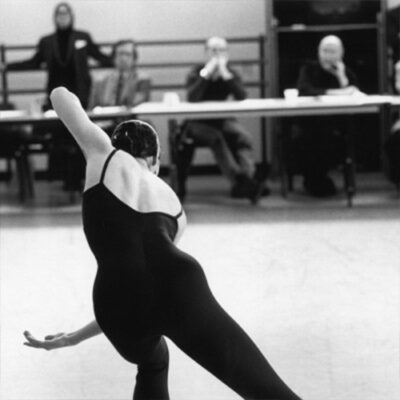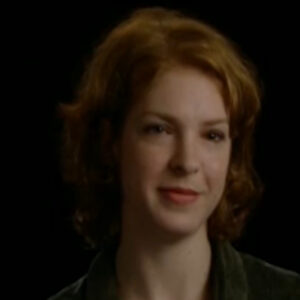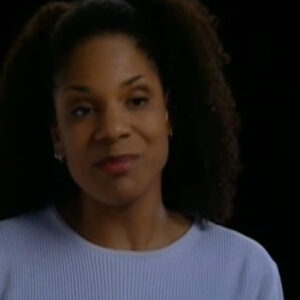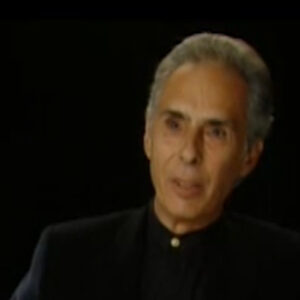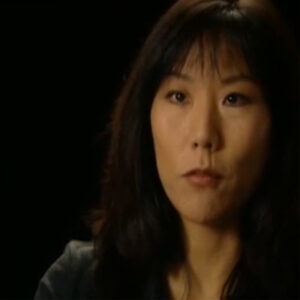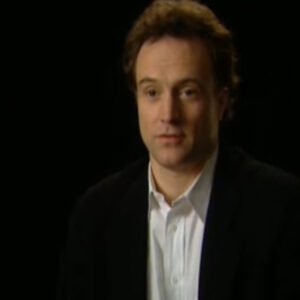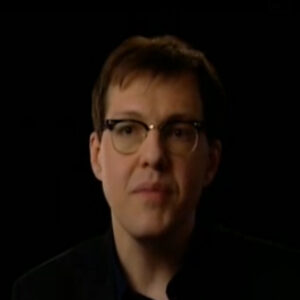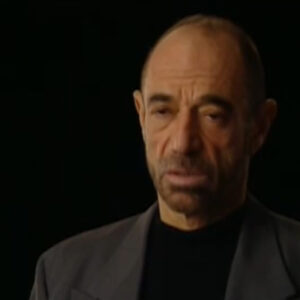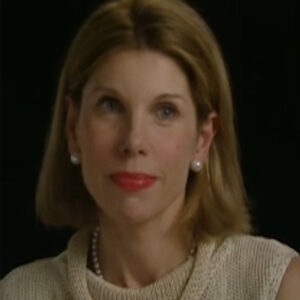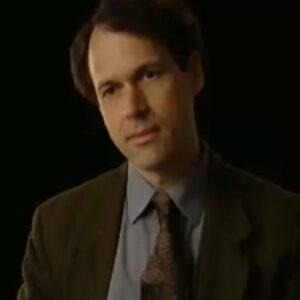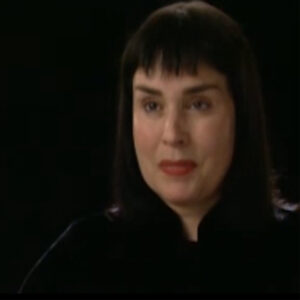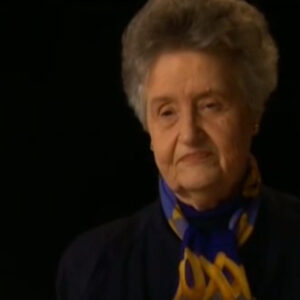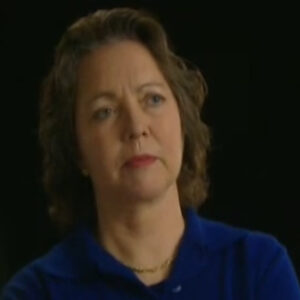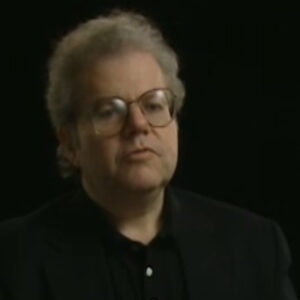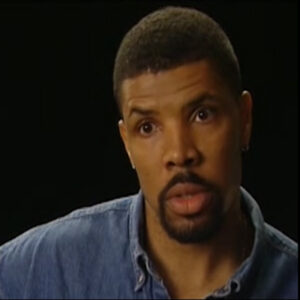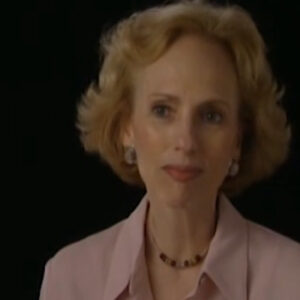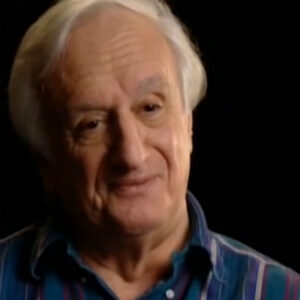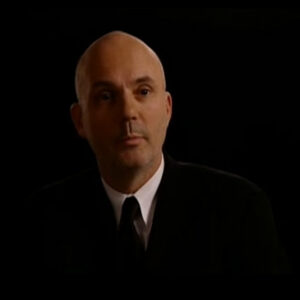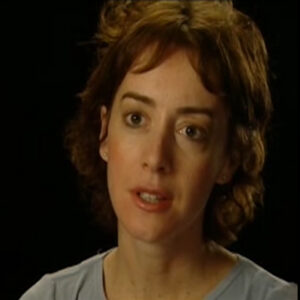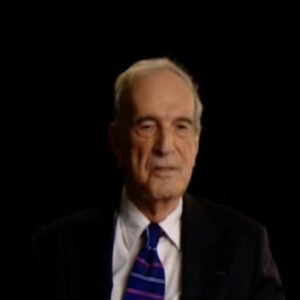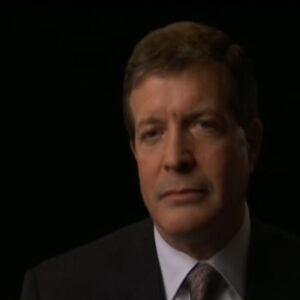Speaker Well, New York is a very interesting time for artists in the 70s and early 80s, it was it was really home to a very large community of experimental artists. Cage was here’s Philip Glass, Steve Reich, Namjoo, John Pike, Merce Cunningham, Lichtenstein. All kinds of wonderful work was being done in New York City in the so-called downtown school. And I was very involved in that community. But after being writing that kind of work and being involved in Kitchin performances and performing garage, I felt like I really needed to get some craft under my belt and there was no better place to do that than Juilliard. So I applied and got accepted. I was thrilled and it was really an extraordinary place to be. That is Juilliard in the 70s and 80s. When you think about the faculty members that the composers that taught in the faculty, then we were so fortunate to be able to be in school. Then we had Roger Sessions, Milton Babbitt, Elliott Carter, who was my teacher for three years, Vincent Percy Ketti and David Diamond. But what an extraordinary collection of composers at the group of them, namely Babbitt, Sessions and Carter, were really part of what we used to call the Uptown School, a kind of academic composers. I hate that term, but that’s the way they referred to. Whereas the downtown school would have their as their home, the kitchen and the performing garage. The Uptown School had Columbia University and the Manhattan School of Music and and Juilliard. So there are these two very distinct camps. And essentially what I had done was migrate from one to another. But it was great being Edgerly or that time in terms of the kind of genius that resided in the composition department. And I’ll always be grateful for for that experience.
Speaker Do you think that it was sort of. Interesting or I mean groundbreaking. Unusual.
Speaker I mean, I’m thinking it’s like pretty basic, pretty fulfilled. Got to take what I’m asking you. I mean, I wonder.
Speaker Because we started. Broaching on something with Pru’s Boubakeur, which was that it said, you know, Julie, I really was actually sort of risky in in its melding of philosophy and so much about the music from the previous century. And then I don’t know whether it was. You know, presidents that were composers themselves, but not composers like that. I mean, it was sort of a sort of an interesting move that they would even develop this kind of composition department with these kinds of composer or not.
Speaker Well, you know, Juilliard is it’s an interesting place. It’s part of part of the school’s legacy. Is that. It had always, in part of its soul, been a European style conservatory. And what is the function of a conservatory? Function of a conservatory is to conserve. Essentially, it’s a training ground for artists to learn the traditions of the past, continue them through the present on into the future. On the other hand, there’s something about the idea of conservatory that runs contrary to the spirit of New York spirit of the United States in many ways. I mean, New York’s the kind of city that tears down monuments to put up newer, bigger, faster, shinier ones. So I don’t think that Juilliard ever completely succeeded in being a kind of European style conservatory in New York City. It certainly does train performing artists in that tradition very well. You look at the legacy performers that come out and there are some extraordinary musicians. But part of the school has always had its eye kind of in another direction as well. I think we’ve yet to see the golden years of Juilliard. I think it’s still on its way. And for me, what that means is when Juilliard fully accepts the fact that only part of its role is to be the conservatory, and the other part has to be to be a kind of laboratory for creating new art, experimenting. I’d like to see a kind of Juilliard annex, a building that’s maybe on the Lower East Side or Hoboken or someplace like that. That is really dedicated to the creation and performance of either multimedia art or interdisciplinary work, where students can feel free to collaborate and experiment away from the shadow of Lincoln Center. Usually a faculty sort of roll their eyes and say, yeah. Next on the agenda. But I have a feeling it’s going to happen one day. You know, when I first became chairman of the L.A. Department, one of the things that I wanted to try and and do with our students is to give them the opportunity of collaborating with students in the other disciplines and the other divisions, namely dance and drama. And we created something called inter arts. Actually, art. We started doing performances of newer works, whether they be compositions by George Kromm and an older compositions of Bach cantatas, but doing new settings of the new arrangements of them into interdisciplinary productions. And these are activities that students didn’t receive credit for. They didn’t get graded for. There was no financial support for. But they remain some of the most interesting and intriguing projects that happen in the school. And many students have said to me that these inter arts productions that are that have been done in the building have been really the high point of their career. So I am sure that if they had the opportunity to do more of that kind of work, if it were sanctioned and supported in a bigger way, that you’d see much greater output of creative and experimental work taking place.
Speaker We do too heavily into what it’s like now. Also, talk to me about your own your own life.
Speaker What does the environment present, you know, of the sort of mood of the school in the time that you were there? It has changed a lot.
Speaker Yeah. Not actually from even before your time. You know, there was like late 60s, early 70s stuff, you know, maybe a little more radical.
Speaker And then you don’t really reemerged in that sort of money making 80s Reagan mentality.
Speaker What was it like at Juilliard at that time?
Speaker Well, when I think back on my student years at Juilliard, I’m amazed to recall how astonishingly conservative the building was. And again, when I was a student there in the 70s and early 80s, it was still really the heyday of the avant garde. It was slightly before the conservative right had taken over in Washington just before the Reagan years. And there was so much new experimental work happening downtown. But in Juilliard, it was as if none of that had ever existed. In fact, composers would come to school dressed everyday in a jacket tie, whereas just up Broadway in the American Acropolis at Columbia University, I mean, kids were wearing torn flannel shirts and frayed bell bottoms and long hair. We came dressed again with such respect and deference to the fact that any moment we might be running across a Pulitzer Prize winning composer down the hall or a A as someone who had just been awarded a National Academy of Arts and Letters Award. So it was a very, very conservative environment. We all knew that and we accepted it and respected it. Although since then, many of my colleagues have gone on to do very, very many different kinds of works, not necessarily in the same conservative tradition.
Speaker But was it I mean, conservative when things conservative when they say when they talk about clothing, that they talk about matters. So they talk about dress. But really the funny way, it’s never really conservative about politics because no one ever talks about politics.
Speaker What’s going on there?
Speaker Yeah, I mean, I think that that’s still true. I think that was always true. And I think to a degree, it still is true. I mean, you have to remember that two to. To begin a career in the performing arts is really first and foremost a kind of act of devotion. You go to a place like Juilliard not because of the promise of getting a great job when you graduate or not because of the promise of making great bucks afterwards or not, because it’s the politically correct, correct thing to do. You go there and have a kind of out of out of love, out of compassion, out of devotion for something. It’s not that different than going to a seminary school. In fact, it’s kind of interesting that the old building on 120 Second Street in Broadway was across the street from the Jewish Theological sent a seminary, and on the other side was the Union Theological Seminary.
Speaker So there is kind of devotional aspect to being a art student. Now, within that context, the focus and the energy and the discipline that you have to have to maintain that path is extraordinary. I mean, by and large, there aren’t substance abuse problems with kids who truly are. There are discipline problems. You never hear of violent incidents. There’s no time for that. They’re too focused, too deeply impassioned about what they do. So in that sense, it hasn’t changed that much. You don’t hear much talk of politics. Now, you didn’t. When I was a student, I don’t think you did much before that, except, of course, barring some real major international crisis. But people basically talk about art.
Speaker Well, I mean I mean, not that anyone’s discuss it, but now you open the door. But there are, you know, nervous breakdowns and. Seemingly pressure. Many. I mean, several admitted people that have gone public about this.
Speaker I mean, there there’s. I mean, I think there were problems. Well, there. I don’t know if they numerically.
Speaker How big are they compared to, you know?
Speaker I think they’re smaller. And certainly the school has done a lot under the police administration to make the mental life of students a tool to allow them a much healthier environment in which to live and work. There’s no doubt about that. I mean, everything from having a secure home base in the dormitory to all kinds of opportunities for interaction with students and faculty and different kinds of counselling and programs and after school activities and weekend activities. I mean, it’s a much more stable environment. It allows for well, for more well-rounded environment, for students to have a sense of wellness. But that said, I still think that students, by and large, are there to be very focused and very disciplined on their career. Again, you don’t you don’t see students rallying around political causes or waving the banner of this this cause or that cause. It’s it’s basically they’re there to play.
Speaker And were you aware or student and also faculty of, you know, competition and pressure? A lot of people who end up counseling, a lot of people think about what? How does that come up? How does that reveal itself to you?
Speaker Pressure. The pressure was extraordinary. And it’s I think it still is extraordinary.
Speaker And for a few reasons, I think that if you go to law school or if you go to medical school and you graduate as an average lawyer or as an average doctor, you could still guarantee that you’re going to have a pretty decent career and a pretty decent payroll coming in. But in the arts, there’s really no room for that middle level of work. So students are constantly being measured against the best of the best performers are constantly being measured against the star artists who are traveling around the world doing these remarkable things. And for composers, my God, we’re measured against Beethoven and Bach and Stravinsky and Schoenberg. I mean, it’s we’re measured constantly against some of the most illuminating figures of human history. So the pressure is actually extraordinary.
Speaker And how does it reveal itself? What do you make?
Speaker Well, I think in those days. It was it was different because there was less opportunity for students to interact. So we all had our own little tiny, poorly lit under ventilated apartments that were stuck way out on the fringes of the New York community. You’d come to school. Juilliard, do your classwork, have your private lesson, jump back on the subway and go home and by and large, live alone. I couldn’t believe when I came to Juilliard and in the 70s that I was in the city of 10 million people and that I was so alone all the time. There was so little opportunity for interaction. So what do you do? You kind of dwell on your life and your role as an artist. Am I good enough and my qualified enough? Can I take the mantle of the fine arts and carry through? Do I have something meaningful to say? I think nowadays, although students still wrestle with those issues there. There’s more opportunity for them to vent those kind of feelings with each other and with faculty members who are sympathetic. It’s interesting there a lot of there a lot of faculty members, younger faculty members. I include myself in that group that were students sexually art. And each one of us that graduated the school and in turn later became faculty members. We all have our own kind of private mission or our private vision of what contributions we would like to make to the environment to make it better than it was when we were there. And to a large degree, that idea of making it better has to do with being more nurturing, allowing students to develop their own personal vision of who they are as an artist to feel more comfortable about their place in the world as a creative being, to be more supportive, more nurturing. Many of us felt that there wasn’t enough of that kind of support when we were in school. And I think it’s quite, quite true.
Speaker And then in.
Speaker And then you end up with a sort of I mean, we can go back to the history of the island.
Speaker But I mean, then you but you must come into play quite frequently with the sort of old guard faculty who really just thinks everybody should practice and come to their lesson. And the new guard, maybe or maybe some of the old guard crossed over, but into this idea that. You know, you really need to know more. I mean, one thing that I’ve noticed, and I think I’ve said this to you before, is that, you know, people like Levi and there are people that I’ve talked to, people that were there in the 60s, said that they were in this constant discussion with people. Like this constant like dining room alive with discussion. You would be in classes. People would be arguing. And I go to theory classes and or I go to Bruce Baker’s class, where people are talking about, you know, he’s talking about Proost and pulling up early like, you know, list can share, you know, list concerts. Maybe it was just an original program to be playing in such and such a place. And he literally he can’t get anyone to answer back.
Speaker And I’m wondering what. It’s to sort of twofold.
Speaker Why has this conversation element of it sort of. Died out or has it? And then sort of on top of that, this is this conflict. People just don’t know enough to be holding these conversations. This battle we know about what you’re talking about and just practicing democracy or crisis.
Speaker Yeah, it is very interesting. We talk about this a lot in department meetings and a faculty council meetings and the idea of how important it is for students to be aware of intellectual pursuits outside their own discipline. And I think, by and large, a lot of faculty members feel frustrated. A lot of classroom teachers feel frustrated that it seems as if there is less interest among students or often in areas outside their immediate discipline. And it’s very, very complex issue. Nowadays, it’s I don’t think it’s enough to just play your instrument really well.
Speaker I think you not only have to be a good performer, but you also have to be an advocate of the arts. You have to know how to speak about your art form. You have to know how to write about it. You have to know where your discipline fits in in the context of the overall American culture. Juilliard students, in fact, all performing artists in a way, are kind of EMBA series travelling around the world, resonating and commute and communicating with audiences all over. And it’s not just enough to stand up and play. You have to know where the music that you’re playing fits into the bigger picture. And and the way to do that is to practice thinking about that, to develop a kind of literacy of symbols, of signs of the messages and images that come from our world. It’s very difficult. It’s very difficult. We understand that problem. We try to instill a love for learning amongst our students, but it’s hard to do. It doesn’t always work.
Speaker Well, well, James Labi actually also said that that if you don’t really if you haven’t listened to all the different Bach recordings and if you don’t know the history and if you don’t, then you’re not going to play it very well either, because it has to be borne out of a knowledge of the different variations under which has been played. Where what was it like when at the time that he wrote that piece? What was that like? What was influencing him to do that if you don’t know those things? And he just went out and figured them out on time. But then again.
Speaker You know you know, again, I go back to the idea that part of Giuliani’s mission, again, is to be the conservatory and to conserve the tradition of the past.
Speaker And so, yes, you need to go and know every recording of the Beethoven string quartets if you’re going to do your own interpretation of that. On the other hand, with the advent of recordings and now so many remarkable ones, how many more recordings of those pieces do we need? There are already hundreds. Do we need another two or three hundred? So I think that part of our mission has to be not only to be to encourage and cultivate the best, recreate ears of art of the past, but we have to train our students and instill in them a kind of creative spirit and a yearning to find a home in the present for what they do to to learn how to take the cultural cues, the cues from their own society and their own background, bring it into their work and put a new spin on it. Bring new life to this that only comes from reading, looking, going to galleries, seeing sculptures, seeing play, seeing films, talking to other artists. Now, I had a funny incident that happened two or three years ago when I was teaching Elena for which is a senior year music theory. I had just seen a an exhibition down on Spring Street in Soho.
Speaker This wonderful sculpture by an Israeli sculptor who had done this lovely work with stone and water. There are images of the Karbalaa, and I wanted to bring my senior year class to go look at this. Work is in some ways it connected with what we were doing. So I have a class of 24 people. I said next Friday rather than meeting here. Let’s meet downtown at such and such gallery. It’s on Spring Street and West Broadway in Soho. Out of 24 students, only four of them had ever been to Soho. Now, this is extraordinary. These are kids that are 21 and 22 years old. Most of them have spent their entire Juilliard career traveling back and forth between 66 Street, which is where Lincoln Center is, and 50 Seventh Street, where Carnegie Hall is, and never venturing out of that little zone. And the thought of going downtown to a sculpture exhibit just seemed so irrelevant, so unnecessary. So it’s at that point where I made it required for them to go. If nothing else, as a geography lesson, never mind a cultural lesson or artistic one. But they have to be aware of all the stuff that you can’t. There’s no way that you’ll have anything meaningful to contribute to your culture unless you’re aware everything begins with awareness, period.
Speaker And so in that sense, doing back Shimbun. And what he was bringing to Juilliard and what his philosophies were and what he was sort of starting to do now was was really pretty interesting at that time. Tell me a little bit about.
Speaker I think William, too, was an extraordinary individual, he he had an incredible intuition and insight and perhaps more importantly, the self-confidence to trust that intuition and to act on it.
Speaker Now, in some instances, maybe he was just flying at your instinct without a lot of historical perspective. But I think, by and large, he made the right decisions. I’m always amazed at how many times I try to create a certain program or or make some changes in the curriculum. And when I go back and read his writings or look at the early years of his tenure as president, that in fact, I’m kind of rediscovering what he had instituted some 50 years ago.
Speaker So, again, I think he was an extraordinary individual and and he understood this idea of Juilliard being half a European conservatory, but half a kind of new institute for the arts that had to provide new ways of learning, new ways of thinking about the arts. I think he was in that sense, really way, way ahead of his time.
Speaker Will he do it? Well, he created a lot of interesting. Programs. Yeah, I mean, do you think against some. Disagreement over just his pinnacle. Now he can do what he wanted. I mean.
Speaker I think that if Schumann were to come back to Juilliard now, he would probably make some corrections in the course, adjust the trim tabs, as Buckminster Fuller might say, and perhaps readjust some of his thinking. But by and large, I think the programs that he started were extraordinarily successful, certainly bringing in drama and dance into what was essentially a music school. And allowing for this Interop interaction is kind of cross polarization between disciplines. That’s one of the most exciting things that’s happened to any arts organization in the United States, creation of the Juilliard String Quartet and Steve Legendary Ensemble. I think the thinking behind Ellen M. and the ideals that he set forth really were really brilliant. We still have some things to do. Is that the best possible program that it can be, Will? No. But in order to make Ellen M. and in fact, in order to make all classroom teaching at Juilliard the best it could possibly be, I think there’s a lot that needs to be done.
Speaker And what from the period that. It moved down to Lincoln Center to like the Met in years. Which are your years? What really changed? And as president of Blake, I mean, actually, if you actually tell us that, I’m not sure that anyone’s ever said on camera that when she shumann when they kicked the Truman became president of Lincoln Center. He was he came back, moved to, you know, even higher job. But at that level. At what point did you give up? You know what men bring in and how did the two of them communicate?
Speaker Well, I think they moved to Lincoln Center, really put a capital A. on the word art and in a sense. It was good in the sense that it made Juilliard have a kind of visibility in in the arts community that it hadn’t had previous to that. And it also elevated the role of the conservatory in arts education in a way that was very important. However, in the same respect, I think that it’s made it a little bit. Well, it may have stifled some of the creative. Energy that existed in the earlier institutions, the karma of Lincoln Center is a heavy one, and you’re constantly surrounded by what is referred to as master works of Western art. And I think a lot of great art is made, a lot of young artists are nurtured not in these great concert halls, but on the street, and they’re out there with their friends, making art in communities for specific places, experimenting in small, dark little theaters or with interesting new ensembles on the fringes of the culture. So Juilliard is home. In the heart of this kind of cultural icon is great for its public image. But it’s not necessarily the best thing for the young creative minds. That’s why I think Juilliard should have a kind of annex annex someplace out in the fringes in the hinterland where people could live outside the shadow of of Lincoln Center.
Speaker But will you actually tell me.
Speaker Slash camera, slash seven million people a little. But you know. What you know of that transition? Like when? I mean, at what point was Bill Shuman as president of, you know, a music conservatory essentially on one hundred and twenty second and Claremont pegged to be president of Lincoln Center? I mean, how did they even. Why did they choose Juilliard as their arm? And and why did this. I mean, what. Who was he then? He became president of Lincoln Center, and then they had to replace him with Ben. And I mean, just these factual points instead of me saying that because I never on camera.
Speaker Yeah, well, you know the exact details. I don’t know. I forget the year was that Lincoln Center, the Juilliard rather, moved downtown and fixed 68 in which all others be the things he said.
Speaker Correct. OK.
Speaker I was in 68, but the plans to move down, you know, early 60s, the designation of Juilliard as. What would become the conservatory eleven years before?
Speaker Well, in Lincoln Center was really the pride and joy of the American cultural scene for some time, and it re

